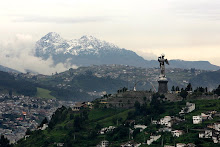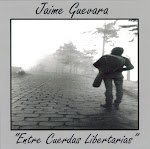
PROGRESO
.
Viajo en autobús
de Arizona
a Nuevo México.
Entre los pasajeros
varios migrantes latinos:
tres mexicanos
dos ecuatorianos
una peruana.
.
Escucho su conversación
desde mi asiento:
jornadas completas,
de lunes a lunes,
feriados, reemplazos,
horas extras.
.
A lo lejos, veo pasar un tren de carga,
cientos de vagones repletos de mercadería.
Uno de los migrantes se queda dormido.
A su lado, un hombre blanco,
señala el tren con orgullo.
"Ahí viaja nuestra economía", dice.
"Ese tren es el retrato de nuestro progreso".
.
La frase retumba en mi cabeza.
El tipo ignora que su economía
también viaja en este autobús
Y que el retrato más humano del progreso
lo encarna el rostro
agotado y seco
del que duerme a su costado.
.
.
PROGRESS
.
I'm riding in a bus
from Arizona
to New Mexico.
Among the passengers
various Latino migrants:
three Mexicans
two Ecuadorians
one Peruvian.
.
I listen to their conversation
from my seat:
full day's work
from Monday to Monday,
holidays, replacements,
overtime.
.
In the distance I see a cargo train passing ,
hundreds of cars full of commodities.
One of the migrants remains sleeping.
Next to him a white man
points to the train with pride:
"There goes our economy", he says.
"That train's the portrait of our progress".
.
The phrase resounds in my head
The guy doesn't know that his economy
is also traveling in this bus
and that the most human portrait of progress
is embodied in the exhausted
and parched face
of the one who's asleep at his side.
.
.
Carla Badillo Coronado, Belongings / Pertenencias.
Traducción: Jack Hirschman. Ed. Caza de poesía, Los Ángeles 2009.






























